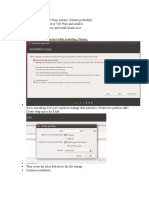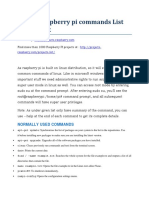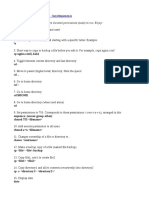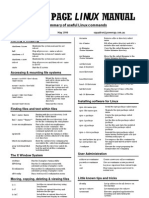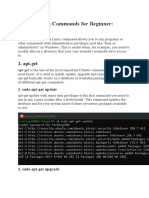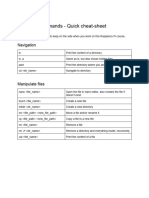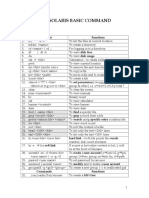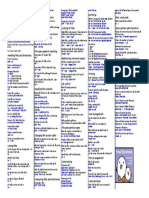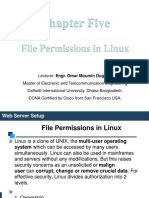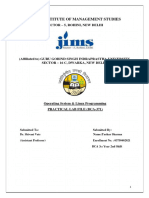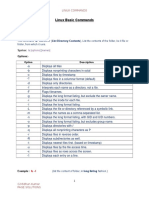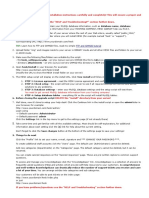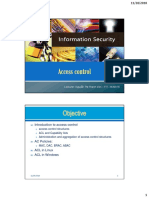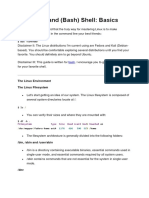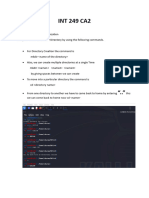0% found this document useful (0 votes)
7 views6 pagesLinux Cmds
The document provides a comprehensive list of Linux commands for system maintenance, file management, and package management. It includes commands for cleaning up the system, updating packages, analyzing system performance, and managing files and permissions. Additionally, it offers instructions for specific tasks such as powering off external drives and performing SSD TRIM.
Uploaded by
sendmails2guruCopyright
© © All Rights Reserved
We take content rights seriously. If you suspect this is your content, claim it here.
Available Formats
Download as TXT, PDF, TXT or read online on Scribd
0% found this document useful (0 votes)
7 views6 pagesLinux Cmds
The document provides a comprehensive list of Linux commands for system maintenance, file management, and package management. It includes commands for cleaning up the system, updating packages, analyzing system performance, and managing files and permissions. Additionally, it offers instructions for specific tasks such as powering off external drives and performing SSD TRIM.
Uploaded by
sendmails2guruCopyright
© © All Rights Reserved
We take content rights seriously. If you suspect this is your content, claim it here.
Available Formats
Download as TXT, PDF, TXT or read online on Scribd
/ 6



